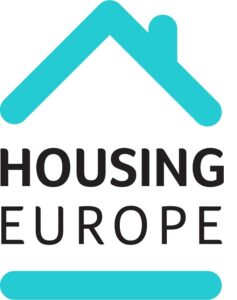‘A financial system for the 21st century’ – United Nations Environment Programme inquiry

In 2015, the United Nations Environment Programme (UNEP) conducted an extensive inquiry which examined how the financial system could contribute to achieving SDGs. It brought together practical examples of policy changes in banking, capital markets, insurance, and institutional investment from advanced and developing economies.
Description
The inquiry report – The Financial System We Need – includes many proposals for policy reforms which would direct market finance to achieve key social and economic priorities, harness public investment more effectively, and improve systems for governing financial markets, thereby transforming investment cultures.
Actors involved
- United Nations Environment Programme (UNEP)
Results
The following recommendations were made:
Enhancing market practice: disclosure, analysis, risk management
- Establish reporting frameworks on affordable and sustainable housing for investors in special purpose bonds which can be used to finance it.
- Adaption of criteria for assessing social, sustainable, and affordable housing providers and investment vehicles by credit agencies[1].
- Integrate housing market stability and climate change risks into central banks’ financial stability reviews and similar reports. For example, improving granularity of mortgage data in relation to macroprudential targets, and credible environmental monitoring of investments to avoid “greenwashing”[2].
Harnessing the public balance sheet: fiscal incentives, public
- Ensure that government funding and subsidies for housing and housing procurement processes promote more sustainable and inclusive outcomes
Directing finance through policy: requirements and prohibitions, enhanced liability
- Ensure public procurement is designed to deliver sustainable and inclusive outcomes and improve societal well-being, economic development, and environmental sustainability.
- Establish priority lending programmes to increase financial access for first time home buyers, not-for-profit social housing providers and co-operatives.
- Introduce rules prohibiting speculative investment in affordable housing.
Cultural transformation: capacity building, behaviour, market structure
- Devise national compacts and road maps to reform finance for housing.
- Support the development of values-based finance institutions and social impact investing.
- Establish systems of certification and labelling for socially and environmentally responsible real estate companies.
[1] See for example Standard and Poors, “Methodology for Rating Public and Non-profit Social Housing Providers”, 8 December 2020. Available at https://www.spglobal.com/ratings/en/research/articles/201208-criteria-governments-request-for-comment-methodology-for-rating-public-and-nonprofit-social-housing-provid-11721121
[2] The European Central Bank recommends that “‘high quality micro data on households’ balance sheets, including indebtedness, financial and real assets is a useful tool for the assessment of micro and macro prudential risk stemming from the household sector” (https://www.ecb.europa.eu/pub/pdf/scpwps/ecb.wp2277~disa4093901f33.en.pdf). The International Monetary Fund is encouraging central banks to assess climate risks (Pierpaolo Grippa, Jochen Schmittmann and Felix Suntheim, “Climate Change and Financial Risk: Central banks and financial regulators are starting to factor in climate change”, Finance and Development, vol. 56, No. 4, December 2019. Available at https://www.imf.org/external/pubs/ft/fandd/2019/12/climate-change-central-banks-and-financial-risk-grippa.htm).
Scale
EU

An initiative of:


